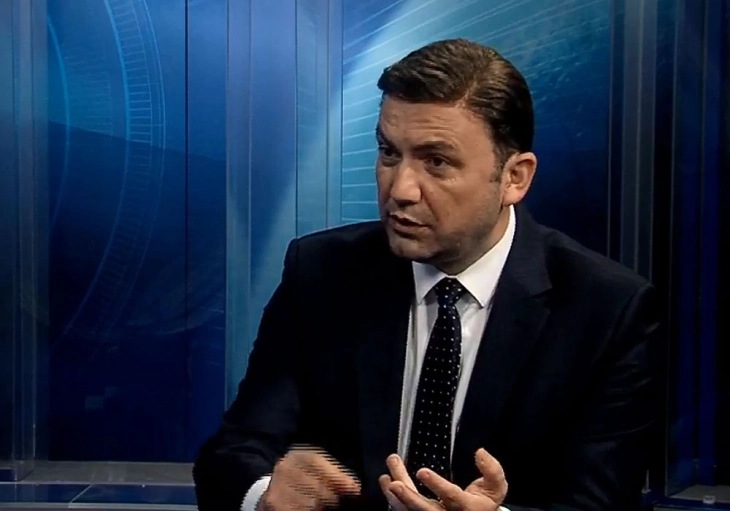Osmani: Constitutional changes in state’s interest, referendum on Bulgaria Treaty not an option

Skopje, 15 September 2022 (MIA) – Constitutional changes are in the interest of the state, a referendum on the Bulgaria Friendship Treaty is not an option and its cancellation risks a Euro-Atlantic North Macedonia, says Foreign Minister Bujar Osmani.
On the referendum initiative, FM Osmani told Sitel TV that the opposition has made a big favor to the process of constitutional changes, because it has detached the debate between the Bulgaria Treaty and the constitutional revision.
“The constitutional changes are not part of the Treaty obligations. You know Mickoski’s statement from the very beginning – if this is the final demand by Bulgaria, we are fine with the constitutional changes. Then he said ‘we are not against incorporating Bulgarians, Montenegrins and Croats but we are not accepting because this is blackmail. There are many in VMRO-DPMNE who I talk to who know this is in the interest of the Macedonian people, in the state’s interest, because it represents an institutional definition of relations between the Macedonian majority and the Bulgarian minority in North Macedonia,” says Osmani.
According to him, there are no formal talks with MPs on the constitutional revision, although the communication is there.
“I believe that we have another problem and this is to convince the citizens before we come to the convincing of lawmakers. It is obvious that at this stage, the propaganda and fake news beat us in the argumentation regarding the start of the accession negotiations,” says Osmani.
He says a referendum on the Bulgaria Treaty is not an option because it is one of the important pillars of a Euro-Atlantic North Macedonia, alongside the Prespa and Ohrid agreements, while adding that its cancellation risks a Euro-Atlantic North Macedonia.
Asked about the dilemma in the public that the negotiations depend on the constitutional changes, the FM says this should be done prior to the opening of the first cluster.
“This was the compromise, because the Bulgarians wanted the constitutional revision before the start of the screening while we said the changes should be made by the end of the negotiations. Therefore, the compromise was somewhere in between,” says Osmani.
He believes the outcome of the negotiations with Bulgaria was 3:1 in North Macedonia’s favor.
“We preserved the language, we started the negotiations and we left the historical issues out of the action plans, whereas Bulgaria got the constitutional decision somewhere in the middle of the process, i.e. after the start of the negotiations. That is why I believe this was a good compromise, considering that the constitutional changes are not controversial, they do not harm the state interests or the interests of anyone,” underlines Osmani.







